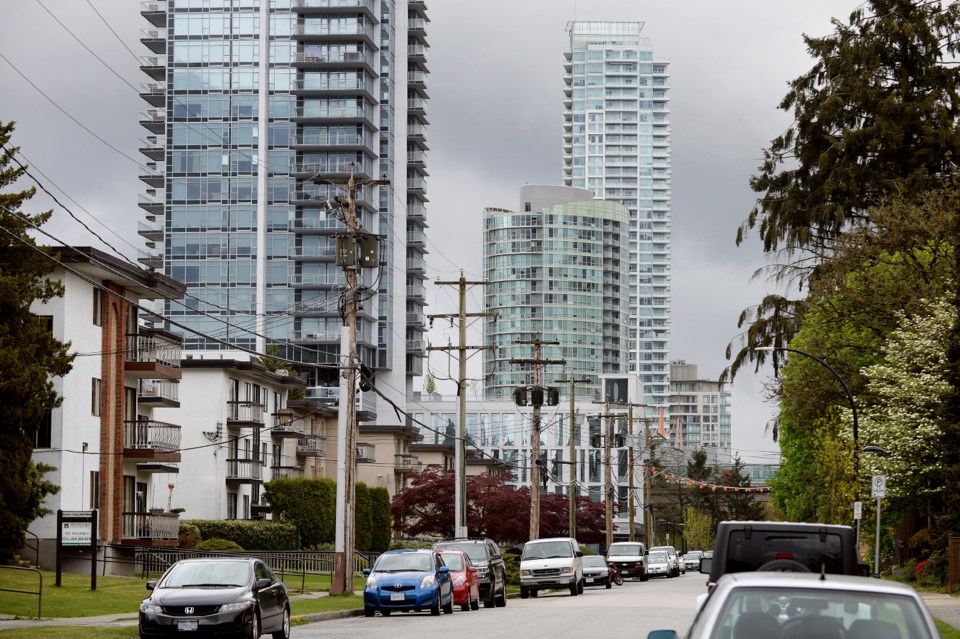Having a lot of money in the bank would normally be considered a good thing. (I know it would for me.)
But in the world of politics, optics are everything, which is why the City of Burnaby’s investment fund has become such a problem for members of city council.
According to a NOW story from Jan. 24, 2018, Burnaby’s billion-dollar investment fund saw “great growth” last year, earning another $223 million in 2017. The reserve was pegged at $1.32 billion, up from $1.10 billion the year before, according to a staff report. You can expect that fund to have grown even more in 2018.
Great news, right?
Except that for the citizens of Burnaby, having such a big bank account doesn’t feel so good if they feel they aren’t seeing their fair share of it.
Since I took over as editor in May of 2018, the most common complaint I’ve read in our letters to the editor and social media comments (apart from people’s hatred of ex-mayor Derek Corrigan) is how the billion-dollar reserves are being hoarded by Burnaby politicians.
Every time somebody sees a pothole or has to walk on a stretch of gravel instead of a paved sidewalk, people bring up the “billion-dollar reserves.” When Fernanda Girotto was killed at a crosswalk at the bottom of Cariboo Hill – an area flagged previously by residents as needing a traffic light - people wondered why some of that reserve money hadn’t been used before the tragic accident. When people wonder why Burnaby Neighbourhood House doesn’t receive direct city funding – instead of just a break on rent – they bring up the city’s fat bank account.
When…OK, you get the point. Anytime the city doesn’t spend money on something, people bring up the billion dollars. Over and over and over again.
Is that fair? Yes and no. It’s fair for Burnaby residents to demand more out of a city that is affluent. But it’s also not fair to expect the city to spend money on anything people demand.
One other reason why the optics of the billion dollars is so bad is because of where all those dollar bills came from.

According to our story from last year, the increase in the reserves is largely due to the construction boom in Burnaby, specifically the density bonus money the city has received from developers. (In exchange for extra density, developers pay into a reserve that’s used to build community amenities such as parks and non-profit housing.)
“With the growth in the Metrotown area, the growth in the Brentwood area, building permits have definitely increased. With that comes additional density,” said Noreen Kassam, the city’s director of finance.
Burnaby collected in $1.05 billion in permit values in 2017, beating its previous record of $879 million in 2015.
The problem with the optics is that you have a lot of Burnaby citizens struggling with affordability at a time when the city is raking in the cash from developers building what is generally considered unaffordable housing. When you see people in Metrotown being demovicted, it’s tempting to want the city to spend some of that cash on affordable housing for those people who lose their homes.
During the 2018 civic election, some demanded that the city’s billion-plus dollars be used for affordable housing or lowering property taxes, but Kassam said in our story that most of the funds are allocated or restricted. She gave the example of land sales, and how the Community Charter requires cities to put those proceeds into a restricted reserve to buy land.
“We have development cost charges, DCCs. When we collect money from DCCs, they’re collected for a specific purpose and can only be used for that purpose,” she said. “The community benefit reserve was put in place to build amenities for the citizens of the future.”
It comes down to striking a balance, according to the director.
“(The fund is) there for future generations, and if you utilize that money now, then you may not have sufficient amounts for the future.”
That appears to be sound advice, but then again, voters don’t always see things that way. They want to cash in on the city’s good fortune and they want to see some results now.
So, it will be interesting to see what council sets as its spending priorities for the coming year. But you can be sure that people won’t stop bringing up the city’s bank account.
Follow Chris Campbell on Twitter and Instagram @shinebox44



